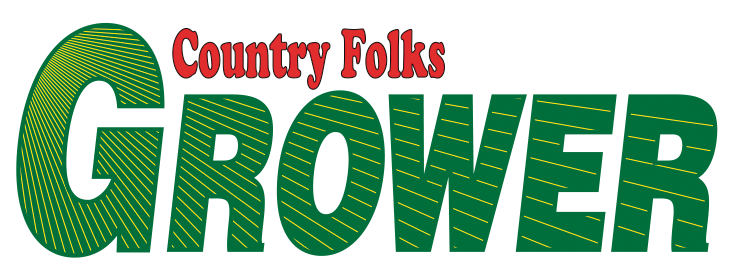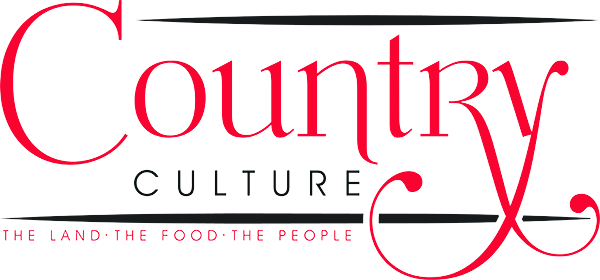John and Halee Wepking met in New York City while working at Prune, a beloved, now closed restaurant. The restaurant valued high-quality ingredients, so the couple would frequently source local foods from the city’s Greenmarkets.
They usually bought fruits, vegetables, dairy and meat at the markets, but they also observed that the local grains movement was gaining traction.
After a decade in the city, the pair was inspired to participate in the agricultural economy in a different way. The couple decided to return to Wisconsin’s Driftless Region where John’s family has farming roots. They ran a café, growing enough food on John’s family land to supply the café and experimented with growing wheat, dry beans and corn.
But the couple didn’t have a viable pathway to farmland ownership until they replied to a help wanted advertisement posted by farmer Paul Bickford. They joined Bickford Farms in 2015.
Halee said, “We were hired as employees, and we ended up successfully executing a non-family farm transfer.”
Bickford Farms, a former dairy, followed a standard Midwest corn/soybean/alfalfa rotation, but Bickford encouraged the couple to experiment. Their first autumn, they planted 40 acres of winter wheat. The acreage and experimentation increased over the next few years, and they sold their certified organic grains through the wholesale market.
In 2016, they received a Value-Added Producer Grant, allowing them to begin building their brand and direct marketing their products. There was a lot of inefficiency involved with hauling their grain to a local miller for processing, so when in 2021 the miller told them he was retiring, they jumped at the chance to buy the equipment.
“We’re vertically integrated, but in all that we have done, built and thought about, it’s always been community-minded,” said Halee.
Sadly, Bickford’s mentorship came to an end sooner than they had expected when he passed away in 2022, but John and Halee are proud to carry his farming knowledge forward.
Currently, they crop about 1,000 acres and grow a diversity of crops: wheat, oats, buckwheat, rye, spelt, popcorn, dry corn and dry beans, in addition to feed and forage crops. They add value by having an on-farm cleaning facility, stone milling their grains and self-distributing to area restaurants, bakeries, retailers and distilleries.
When the pandemic hit, Meadowlark was bombarded with emails from people looking for 50 or 100 lbs. of flour. Halee knew they needed to find a way to reassure people that they didn’t need to buy so much at once, and by extension, show them that Meadowlark’s small regional supply chain was robust and adaptable.
She launched a community-supported agriculture (CSA) program offering “Grain Shares.” Grain Shares were also a way to encourage their customers to experiment in the kitchen.
“I think on most farms diversity is better. Diversity is the answer. So I really wanted to create a structure that would encourage people to try new things,” said Halee.
Customers can choose from a variety of grain shares including the “I Don’t Bake (Much)” share for $26/month, the “Kneader” for $52/month or the “Deluxe Grainiac” for $111/month.
Each month, Meadowlark selects a Farmer’s Choice option (usually a whole grain, beans, rolled oats or flaxseeds) and a Miller’s Choice option (usually a milled flour). Beyond the Farmer’s and Miller’s choices, grain share customers get to customize what they receive with their remaining credits. This all takes place on the online platform Farmigo.
“If anybody has done their own CSA or been part of a CSA, I feel like having flexibility to get to choose is a real bonus,” Halee said.
Unlike many CSAs, Meadowlark has a pay-as-you-go, cancel-at-any-time policy. They also offer a 10% discount if a customer needs, for example, to add a 15-lb. bag of flour to their order (Meadowlark affectionately refers to these as “flour babies”). For those who don’t want to sign up for a Grain Share, they offer standard ordering and shipping through their website.
About half of the Grain Share boxes are shipped via a regional carrier who has very affordable rates. Because of this, they can offer a flat rate regional shipping fee – if the order is under 40 lbs. then the customer pays $10 in shipping. The other half of the shares are delivered to drop-offs including a private residence, a bakery and a nearby vegetable farm.
Each month, customers receive a recipe card that incorporates a grain from either the Farmer’s Choice or the Miller’s Choice. Halee, a former chef who doesn’t particularly like writing recipes, works hard to curate ones that she thinks her customers will appreciate. One of her parameters is that they must fit on a half sheet of paper. They also include information about the grain and how it fits into their cropping strategy.
It takes a big team of employees to run the farm, the mill and pack orders. “Grain Share week is a heavy lift. We have it on the calendar in big, bold letters. We know we can’t take on extra large orders, and we can’t expect to ship a bunch of other random stuff that week. And we still have our usual sales,” she said.
Grain Share day does require all hands on deck, but the shares now make up about 4% of Meadowlark’s gross sales. They pack, on average, about 95 Grain Share boxes per month. If Grain Shares were considered as one customer, it would be their sixth largest.
“If you’re on a small scale, you could do this quarterly. You could do it seasonally. I have friends who have an herb farm in Vermont, and I got their herb CSA. It was such a joy to receive it in spring and summer. You can really curate the boxes. It can be a small, wonderful part of peoples’ lives or it can be an every month thing. So there’s a lot of opportunities,” Halee said.




